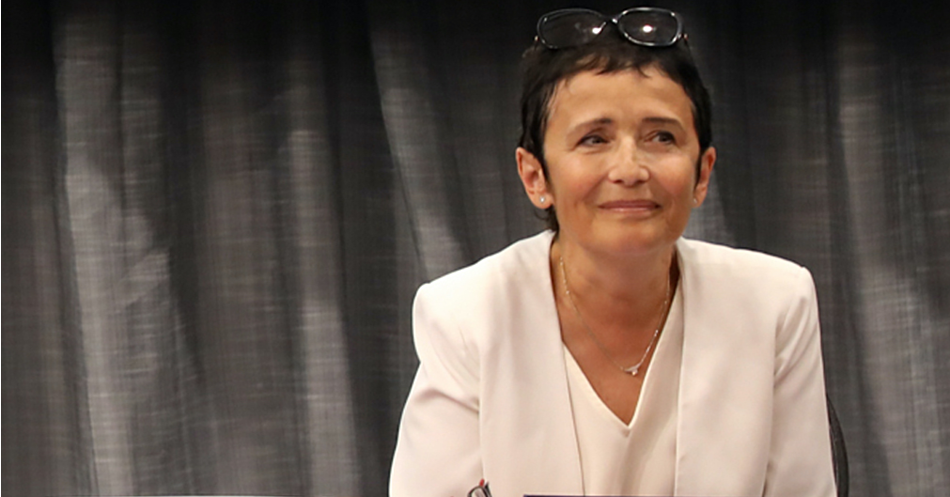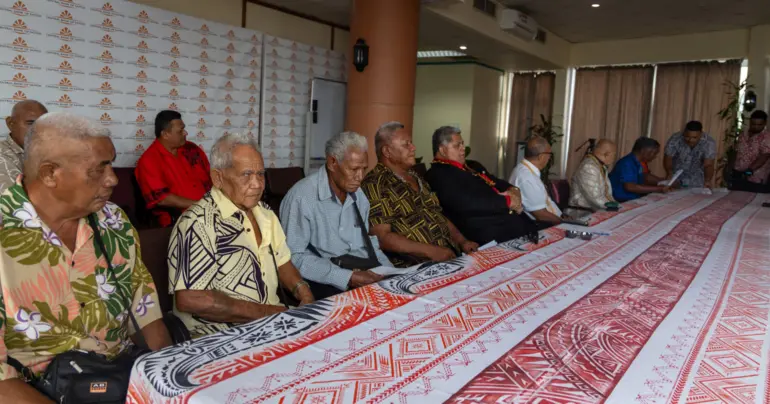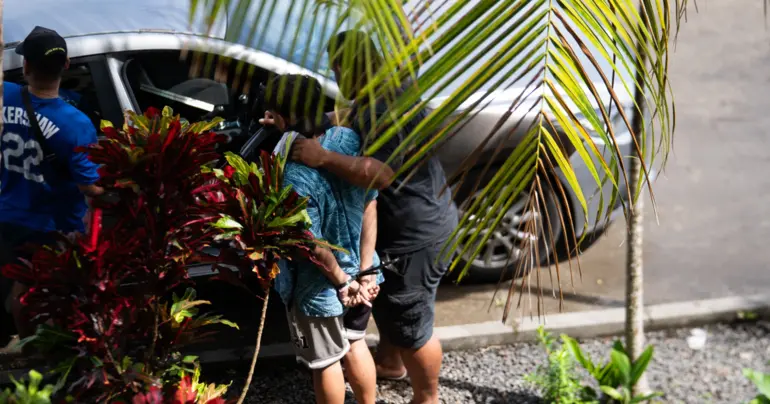Mulipola right on dialysis machines
A senior Cabinet Minister’s opposition the other day to bringing in more dialysis machines into the country has shocked a lot of people.
The Minister of Finance, Mulipola Anarosa Ale-Molio'o, told the Parliament on Wednesday during debate on the National Kidney Foundation’s Annual Report for the FY 2019/2020 that she disagrees with the proposal to bring in more dialysis machines.
An article (Dialysis machines warning) in yesterday’s edition of the Samoa Observer reported on Mulipola’s opposition and the rationale behind position.
According to Mulipola, the Ministry of Health (M.O.H.) should focus more on preventative measures, in order to address and not add to the growing number of dialysis patients in the country.
"This is because it reflects poor health and management in the country and indicates Samoa’s acceptance that there will be more and more patients needing dialysis treatments," Mulipola told Parliament.
"Instead of asking for more dialysis machines and investing in building more facilities for the growing number of dialysis patients in Samoa, we should consider the root causes of kidney failure and initiate preventative measures and come up with more effective strategies to alleviate the growing numbers and address the issue on the ground."
Now that speech by the Minister to the Legislative Assembly was from the left-field, as it would have caught a lot of people by surprise, and even infuriated those who have family members who are currently in need of dialysis treatment.
But the truth needed to be told due to the long-term impact of non-communicable diseases (NCDs) on Samoa, and Mulipola as the Cabinet Minister overseeing the Government's finances can already see the destination Samoa is heading, where the health crisis will gradually become a huge cost to an already overstretched health infrastructure.
At the end of the day, rising incidences of NCDs in Samoa point to the failure of individuals to live a healthy lifestyle, and confirms that the efforts of the M.O.H. in creating and promoting preventative measures are not working. So what should the country do to tackle NCDs over the long-term period in Samoa in order to lessen its impact?
Mulipola – who recently Co-Chaired the Pacific Early Childhood Development Conference held in Nadi, Fiji – spoke of the significance of going back to the roots of each problem for more effective solutions.
"The theme for the E.C.D. Forum was ‘Less Talk - more action’. Therefore, I do not encourage our ministry to purchase any more dialysis machines or build another facility to treat dialysis patients,” she told the Parliament.
"We should commit our efforts to preventative measures to avoid having to use a dialysis machine. The cure and answer are in our own hands.”
Unsurprisingly, a lot of Samoans have taken to social media since the news emerged, and criticised the Minister while accusing her of lacking empathy.
But the Minister needs the support of the nation and not condemnation – for being blunt about a public health crisis which can wreak havoc and negatively impact Samoa's development goals and aspirations – if not reined in sooner. It is time to move beyond band aid solutions when it comes to combating NCDs.
So what does the data on NCDs in Samoa really tell us about this public health crisis that continues to present challenges for local authorities?
A study (Cascades of diabetes and hypertension care in Samoa: Identifying gaps in the diagnosis, treatment, and control continuum – a cross-sectional study) uploaded to The Lancet medical journal in January last year pointed out its key findings.
“We found a significant burden of diabetes and hypertension in Samoa, exceeding the recent prevalence estimates of other low- to middle-income countries by nearly two-fold,” stated the study.
Diabetes and hypertension are NCDs so you can imagine how much pressure Samoa's health infrastructure is already under.
Obviously the M.O.H. will need to tweak its strategy, as the study suggested, and put more emphasis on primary care efforts as well as national screening campaigns and programs that leverage village and district nurses to deliver community-based primary care.
However, it will be an uphill battle trying to promote behavioural change in the people’s lifestyle and their consumption habits. We are reminded of the findings of a study by local Oceania University of Medicine academic, Toleafoa Dr Viali Lameko published in March last year. Toleafoa’s paper concluded “there is no clinical evidence” of the success of M.O.H. strategies to reduce obesity and obesity-related diseases.
But we should not throw in the towel on the fight against NCDs, especially when there is conclusive evidence that the Ministry itself is struggling to have an impact. Last Friday local non-profit organisation, Matuaileoo Environment Trust Incorporated (METI), held a ceremony to mark the end of a six-month project in six villages which delivered training on planning and maintaining a healthy diet and lifestyle.
The project coordinated and led by METI was funded by a SAT$40,000 grant courtesy of the Ministry of Women, Community, and Social Development (MWCSD). The grant is part of wider efforts by the Samoa Government through the Ministry to eliminate NCDs in Samoa, in partnership with other stakeholders including the M.O.H.
They say behavioural change will take a generation. Small community-focused initiatives, such as the one coordinated and led by the METI which ended last Friday, should form the pathway going forward in the fight against NCDs. The beauty of such an initiative is that they are not multimillion tala projects and in the current economic environment would be within budget.
These community-focused projects are baby steps towards tackling a bigger public health crisis, which is already costing the Government millions of tala annually. Minister Mulipola is correct: we have to bite the bullet on this one for the country's long-term health and prosperity. We owe it to our children to begin that change and start taking those steps necessary for a healthy future for all.
Tags











